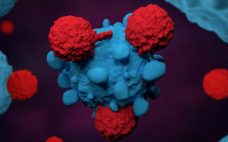This webcast features: Jamie Freeman, PhD, Product Manager, Horizon Discovery While Horizon’s GS knockout CHO K1 cell line is rapidly becoming established as one of the best performing cell lines available for the manufacture of biotherapeutics, there is untapped potential within the CHO system. Horizon is focused on using its expertise in genome engineering techniques to modify CHO cell lines to improve their expression capacity for biomanufacturing. Historically, efforts to increase yield have primarily focused on improving media and feed,…
Monday, November 5, 2018 Daily Archives
Novartis pulls US rituximab program citing FDA data demands
Novartis subsidiary Sandoz has decided not to pursue a biosimilar of Roche’s Rituxan in the US after receiving a complete response letter from the FDA. In June 2017, biosimilar developer Sandoz received approval in Europe for Rixathon, a version of Rituxan (rituximab), which Roche markets as Mabthera in the region. But across the Atlantic, the Swiss biopharma has failed to replicate such regulatory success, and received a US Food and Drug Administration (FDA) complete response letter (CRL) in June this…
Astellas invests $256m in Japanese and US antibody and cell therapy sites
Astellas says it is responding to the supply needs of future pipeline by constructing two multi-modality Japanese sites and relocating a regenerative medicine plant in Massachusetts. Both R&D and manufacturing are being looked at through the expansion of sites in Toyama and Tsukuba, Japan, and Massachusetts, US to progress the development and commercialization of Astellas’ portfolio. “Astellas is responding to the progress being made in the development and launch of new drugs from its existing portfolio and pipeline,” a spokesperson…
GSK selects Hitachi to make T-cell therapy
Hitachi Chemical Advanced Therapeutics Solutions (HCATS) will make clinical batches of GlaxoSmithKline’s T-cell receptor therapy targeting NY-ESO-1 from its New Jersey site. The three-year agreement will see HCATS manufacture clinical batches of GSK’s T-cell receptor therapy targeting New York esophageal squamous cell carcinoma 1 (NY-ESO-1). The SPEAR (Specific Peptide Enhanced Affinity Receptor) T‑cell therapy is one of a number of cancer immunotherapies being codeveloped between GSK and Oxford, UK-based Adaptimmune, in a collaboration inked in 2014. The clinical production of…




